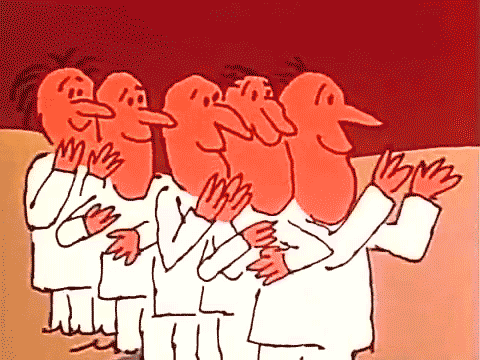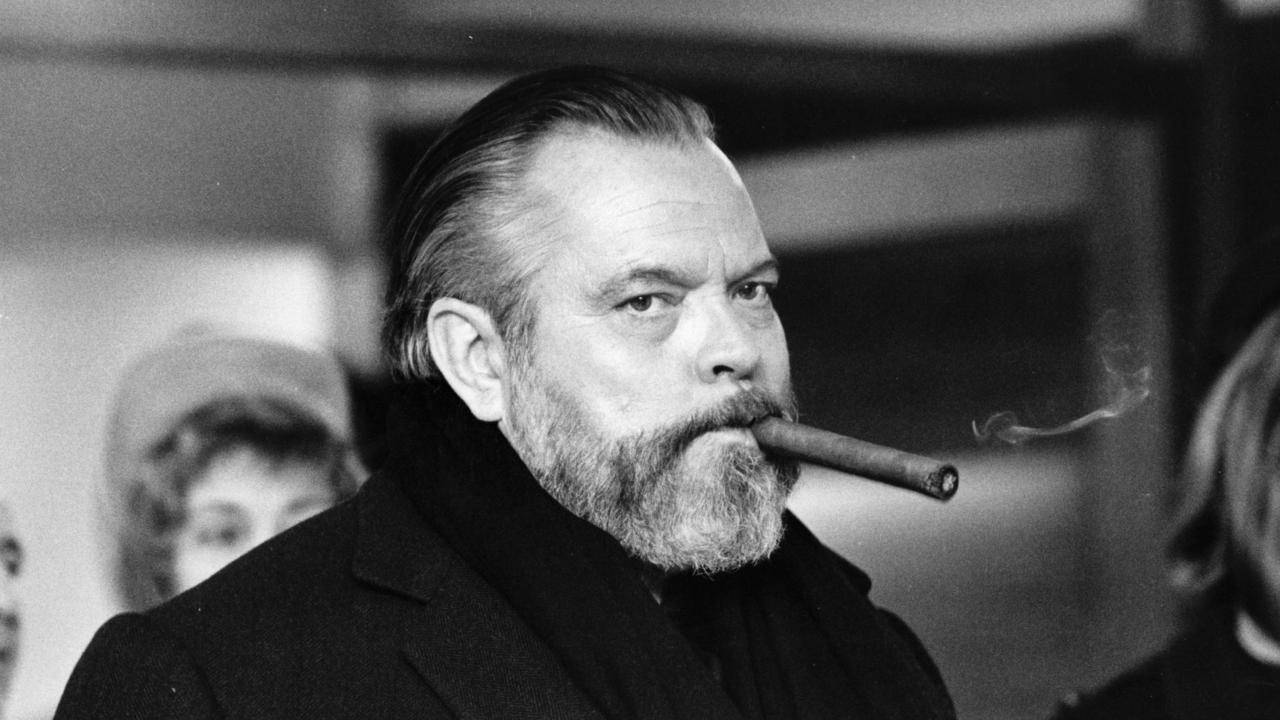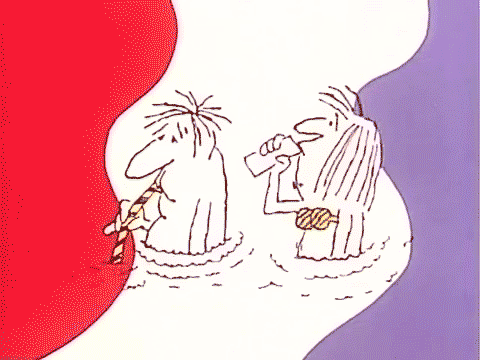In 1971, Orson Welles added his voice to Sam Weiss’ animation for Freedom River, a modern day parable about mankind getting along together.
Joseph Cavella, who wrote the script, notes:
For several years, Bosustow Productions had asked Orson Welles, then living in Paris, to narrate one of their films. He never responded. When I finished the Freedom River script, we sent it to him together with a portable reel to reel tape recorder and a sizeable check and crossed our fingers. He was either desperate for money or (I would rather believe) something in it touched him because two weeks later we got the reel back with the narration word for word and we were on our way.

When some arose and took more than their share, the people did not stop them, but instead resolved to do the same.
Bosustow Productions was run by Canadian Stephen Bosustow, an esteemed writer and producer, best known for Mister Magoo (1960), Gerald McBoing-Boing (1950) and The Tell-Tale Heart (1953). In 1957, Bosustow’s work occupied all three slots in the Best Short Subject, Cartoons Oscar category. (Mister Magoo’s Puddle Jumper won.)

But others said, let us work to make the waters of freedom flow fresh and strong again. It can become fresh by our vigilance. The life or death of the river of freedom is in our hands.
In 1970, Bosustow and Welles worked together on the Oscar-winning short animation Is It Always Right to Be Right? Directed by Lee Mishkin, the film rings true today. “When differences arose between the people of this land,” narrates Welles, “they looked not for truth but for confirmation for what they already believed.” It’s not free speech the West holds dear, but Me Speech. “Everyone was right, of course,” adds Welles, until, after much division, a voice admits, “I might be wrong.”
The message of tolerance, debate, democracy and mutual respect is clear.
In Freedom River, Welles states:
“They knew that the power of freedom would renew their hope and replenish their energy. They did not know that too much pride could blind them. They did not know that too much pride could make them arrogant. They barred from it people that looked unfamiliar or talked differently in the false belief that strangers were not deserving. When new ideas were proposed, people ridiculed them. When some arose and took more than their share, the people did not stop them, but instead resolved to do the same. Instead of helping those that were ill and weak. They despised them and chastised them for their idleness. And even as the river grew weak and muddy, glib leaders said it was strong and clear. The people became confused. They did not know what to do.”
Would you like to support Flashbak?
Please consider making a donation to our site. We don't want to rely on ads to bring you the best of visual culture. You can also support us by signing up to our Mailing List. And you can also follow us on Facebook, Instagram and Twitter. For great art and culture delivered to your door, visit our shop.












